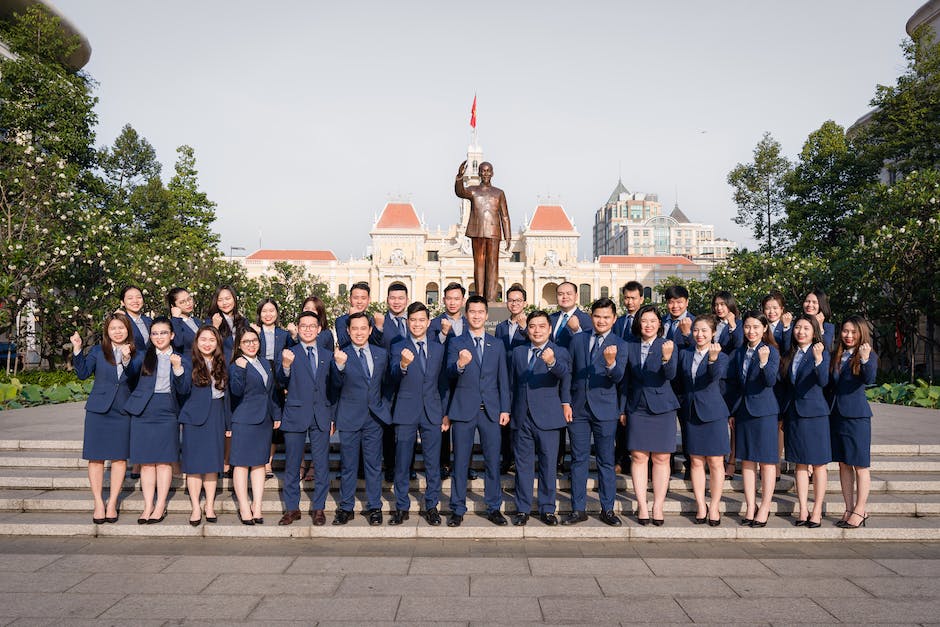Table of Contents
- Introduction
- The Evolution of HR in the Digital Age
- Redefining Talent Acquisition Strategies
- The Role of Artificial Intelligence in HR
- Building a Culture of Continuous Learning and Development
- Redefining Performance Management in the Modern Workplace
- The Impact of Remote Work on HR Practices
- Diversity, Equity, and Inclusion in HR
- Redefining Employee Engagement and Well-being
- The Future of HR: Navigating Change and Uncertainty
- Q&A
- Conclusion
“Transforming HR: Embracing the Power of Resources” – K Ramkumar, Executive Director of ICICI BANK
Introduction
K Ramkumar is the Executive Director of ICICI Bank and is known for his expertise in redefining human resources. In his article “Redefining Human Resources: A Shift from Human to Resources,” he explores the changing role of HR in organizations.
The Evolution of HR in the Digital Age
In today’s rapidly evolving digital age, the role of Human Resources (HR) within organizations is undergoing a significant transformation. Traditionally, HR has been viewed as the department responsible for managing the people within an organization. However, as technology continues to reshape the way we work and interact, HR is now being redefined as a strategic partner that leverages data and analytics to drive business outcomes.
One of the key shifts in HR is the move from focusing solely on the “human” aspect of the workforce to also considering employees as valuable resources. This shift is being driven by the increasing importance of data and analytics in decision-making processes. By treating employees as resources, organizations can better understand their skills, capabilities, and potential contributions to the overall success of the business.
As K Ramkumar, Executive Director of ICICI Bank, points out, this shift in mindset is crucial for HR to remain relevant in today’s digital age. In a recent interview, Ramkumar emphasized the need for HR professionals to embrace technology and data-driven approaches to talent management. By leveraging data analytics, HR can gain valuable insights into employee performance, engagement, and retention, allowing them to make more informed decisions that drive business growth.
Another important aspect of the evolution of HR in the digital age is the increasing focus on employee experience. In a competitive job market, organizations are realizing the importance of creating a positive work environment that attracts and retains top talent. HR plays a critical role in shaping the employee experience by implementing programs and initiatives that promote engagement, well-being, and career development.
Furthermore, the rise of remote work and virtual teams has presented new challenges for HR professionals. As more employees work from home or in distributed locations, HR must find innovative ways to support and connect with remote workers. This includes implementing digital tools and platforms that facilitate communication, collaboration, and performance management across virtual teams.
In addition to these changes, HR is also being called upon to address issues related to diversity, equity, and inclusion (DEI) in the workplace. As organizations strive to create more diverse and inclusive work environments, HR must take a proactive approach to recruiting, hiring, and developing a diverse workforce. This includes implementing training programs, policies, and initiatives that promote diversity and foster a culture of inclusion.
Overall, the evolution of HR in the digital age represents a shift from traditional HR practices to a more strategic and data-driven approach to talent management. By redefining employees as valuable resources and leveraging technology to drive decision-making, HR can play a more strategic role in driving business success. As K Ramkumar aptly summarizes, “HR professionals must adapt to the changing landscape of work and embrace technology as a tool to enhance the employee experience and drive business outcomes.” By embracing these changes, HR can position itself as a key driver of organizational success in the digital age.
Redefining Talent Acquisition Strategies
In today’s rapidly evolving business landscape, the role of Human Resources (HR) has undergone a significant transformation. Traditionally, HR was seen as a support function responsible for managing employee relations, payroll, and compliance. However, in recent years, HR has evolved into a strategic partner that plays a crucial role in driving organizational success.
One of the key areas where HR has made a significant impact is in talent acquisition. As businesses compete in a global marketplace, the ability to attract and retain top talent has become a critical success factor. In response to this challenge, HR departments have had to rethink their talent acquisition strategies and adopt innovative approaches to sourcing, assessing, and onboarding new employees.
At ICICI Bank, we have embraced this shift in HR thinking and have redefined our talent acquisition strategies to align with our business goals. As the Executive Director of ICICI Bank, I have witnessed firsthand the importance of having a strong talent pipeline to drive our organization forward. In this article, I will share some of the key strategies that we have implemented to attract and retain top talent.
One of the first steps we took was to redefine our employer brand. In today’s competitive job market, it is essential for organizations to differentiate themselves and showcase what makes them a great place to work. We invested in employer branding initiatives that highlighted our company culture, values, and career development opportunities. By creating a compelling employer brand, we were able to attract a larger pool of qualified candidates who were aligned with our organizational values.
Another key strategy that we implemented was to leverage technology to streamline our recruitment process. We invested in applicant tracking systems, video interviewing platforms, and online assessments to make our recruitment process more efficient and effective. By leveraging technology, we were able to reach a wider audience of candidates, reduce time-to-hire, and improve the overall candidate experience.
In addition to redefining our employer brand and leveraging technology, we also focused on building a strong talent pipeline through proactive sourcing and networking. We attended industry events, partnered with universities, and engaged with professional organizations to identify top talent in the market. By building relationships with potential candidates before they were actively looking for a job, we were able to create a pipeline of qualified candidates who were interested in joining our organization.
Furthermore, we placed a strong emphasis on diversity and inclusion in our talent acquisition strategies. We recognized the importance of building a diverse workforce that reflects the communities we serve and brings different perspectives to the table. We implemented diversity recruiting initiatives, unconscious bias training, and inclusive hiring practices to ensure that we were attracting and retaining a diverse talent pool.
In conclusion, the role of HR in talent acquisition has evolved from a transactional function to a strategic partner that drives organizational success. By redefining our talent acquisition strategies at ICICI Bank, we have been able to attract and retain top talent, build a strong employer brand, leverage technology, build a strong talent pipeline, and promote diversity and inclusion. As organizations continue to compete for top talent in a global marketplace, it is essential for HR departments to adapt and innovate their talent acquisition strategies to stay ahead of the curve.
The Role of Artificial Intelligence in HR
In recent years, the field of Human Resources (HR) has undergone a significant transformation, driven by advancements in technology and the rise of artificial intelligence (AI). As organizations strive to stay competitive in a rapidly changing business landscape, the role of HR professionals has evolved from traditional administrative tasks to strategic decision-making and talent management. This shift has led to a redefinition of HR, moving away from a focus solely on the “human” aspect of the workforce to a more holistic view that encompasses the “resources” available to an organization.
One of the key drivers of this transformation is the increasing use of AI in HR processes. AI technologies, such as machine learning algorithms and natural language processing, have the potential to revolutionize the way HR functions are performed, enabling organizations to make more informed decisions and improve overall efficiency. From recruitment and onboarding to performance management and employee engagement, AI is reshaping the way HR professionals approach their work.
One area where AI is making a significant impact is in recruitment. Traditionally, the process of sourcing, screening, and selecting candidates for open positions has been time-consuming and labor-intensive. However, with the help of AI-powered tools, HR professionals can now automate many of these tasks, allowing them to focus on more strategic activities. For example, AI can analyze resumes and job applications to identify top candidates based on specific criteria, saving recruiters valuable time and resources.
Another area where AI is transforming HR is in performance management. By leveraging AI technologies, organizations can collect and analyze data on employee performance in real-time, providing managers with valuable insights into individual and team productivity. This data-driven approach allows HR professionals to identify trends and patterns that can help improve employee engagement and retention, ultimately leading to better business outcomes.
Employee engagement is another area where AI is playing a crucial role. By using AI-powered tools to analyze employee feedback and sentiment, organizations can gain a better understanding of what motivates their workforce and how to create a more positive work environment. This data-driven approach can help HR professionals tailor their strategies to meet the needs of employees, leading to higher levels of engagement and satisfaction.
While the rise of AI in HR presents many opportunities for organizations to improve their processes and outcomes, it also raises important ethical and privacy concerns. As AI technologies become more sophisticated, there is a risk that they could be used to make biased or discriminatory decisions, particularly in areas such as recruitment and performance management. HR professionals must be vigilant in ensuring that AI is used in a fair and transparent manner, with appropriate safeguards in place to protect employee rights.
In conclusion, the role of AI in HR is rapidly evolving, reshaping the way organizations approach talent management and workforce planning. By harnessing the power of AI technologies, HR professionals can make more informed decisions, improve efficiency, and enhance employee engagement. However, it is essential that organizations approach the use of AI in HR with caution, ensuring that ethical considerations are taken into account and that employee rights are protected. As the field of HR continues to evolve, the role of AI will undoubtedly play a central role in shaping the future of work.
Building a Culture of Continuous Learning and Development

In today’s rapidly changing business landscape, the role of Human Resources (HR) has evolved significantly. Traditionally, HR was seen as a support function responsible for administrative tasks such as payroll, recruitment, and employee relations. However, in recent years, there has been a shift towards redefining HR as a strategic partner that plays a crucial role in building a culture of continuous learning and development within organizations.
One of the key drivers behind this shift is the recognition that employees are the most valuable asset of any organization. In order to stay competitive in today’s global economy, companies must invest in their employees’ growth and development. This is where HR comes in, as they are responsible for designing and implementing learning and development programs that help employees acquire new skills and knowledge.
At ICICI Bank, we understand the importance of building a culture of continuous learning and development. As the Executive Director of the bank, I have seen firsthand the positive impact that investing in our employees’ growth has had on our business. By providing our employees with opportunities for learning and development, we have been able to attract and retain top talent, improve employee engagement, and drive innovation within the organization.
One of the key initiatives that we have implemented at ICICI Bank is our Leadership Development Program. This program is designed to identify and develop high-potential employees who have the potential to take on leadership roles within the organization. Through a combination of classroom training, on-the-job learning, and mentoring, we help our employees develop the skills and competencies they need to succeed in leadership positions.
In addition to formal training programs, we also encourage a culture of continuous learning through informal learning opportunities. This includes things like lunch and learn sessions, book clubs, and online learning platforms. By providing employees with a variety of learning opportunities, we ensure that they have the tools they need to continuously improve their skills and stay ahead of the curve.
Another important aspect of building a culture of continuous learning and development is creating a supportive and inclusive work environment. At ICICI Bank, we believe that all employees should have equal access to learning and development opportunities, regardless of their background or position within the organization. This is why we have implemented policies and programs that promote diversity and inclusion, and ensure that all employees feel valued and supported in their learning journey.
As the business landscape continues to evolve, it is clear that organizations must adapt in order to stay competitive. By redefining HR as a strategic partner in building a culture of continuous learning and development, companies can ensure that their employees have the skills and knowledge they need to succeed. At ICICI Bank, we are committed to investing in our employees’ growth and development, and we believe that this is key to our continued success in the future.
Redefining Performance Management in the Modern Workplace
In today’s rapidly evolving business landscape, the role of Human Resources (HR) has undergone a significant transformation. Traditionally, HR was seen as a support function, primarily responsible for administrative tasks such as payroll processing, recruitment, and employee relations. However, as organizations strive to stay competitive in a global marketplace, the focus of HR has shifted towards strategic workforce planning and talent management.
One of the key areas where this shift is most evident is in performance management. Traditionally, performance management was a once-a-year exercise, where employees would receive feedback on their performance and set goals for the upcoming year. However, this approach is no longer sufficient in today’s fast-paced business environment.
Today, organizations are moving towards a more continuous performance management model, where feedback is provided on a regular basis and goals are adjusted as needed. This shift is driven by the recognition that employees need timely feedback to improve their performance and stay engaged in their work.
At ICICI Bank, we have embraced this shift towards continuous performance management. We believe that regular feedback is essential for employees to grow and develop in their roles. By providing ongoing feedback, we can address issues as they arise and help employees course-correct in real-time.
In addition to providing regular feedback, we have also redefined the way we set goals at ICICI Bank. Instead of focusing solely on individual performance goals, we now emphasize team goals and collaboration. This shift towards a more team-oriented approach has helped foster a culture of collaboration and innovation within our organization.
Another key aspect of redefining performance management is the use of technology. At ICICI Bank, we have implemented a performance management system that allows employees to track their goals, receive feedback, and access resources to help them improve their performance. This technology-driven approach has made performance management more transparent and accessible to employees.
In addition to technology, we have also invested in training and development programs to help employees enhance their skills and capabilities. By providing employees with the tools they need to succeed, we are able to create a high-performing workforce that is equipped to meet the challenges of the modern workplace.
Overall, the shift towards continuous performance management at ICICI Bank has been instrumental in driving employee engagement and productivity. By providing regular feedback, setting team goals, leveraging technology, and investing in training and development, we have been able to create a culture of high performance and collaboration within our organization.
As organizations continue to adapt to the changing business landscape, it is clear that the traditional approach to performance management is no longer sufficient. By redefining performance management and embracing a more continuous and collaborative approach, organizations can create a high-performing workforce that is equipped to succeed in the modern workplace.
The Impact of Remote Work on HR Practices
The COVID-19 pandemic has brought about a seismic shift in the way we work. With remote work becoming the new norm for many organizations, Human Resources (HR) practices have had to adapt to this new reality. As companies navigate the challenges of managing a remote workforce, HR professionals are redefining their roles and responsibilities to meet the needs of a distributed workforce.
One of the key challenges that HR professionals face in the era of remote work is maintaining employee engagement and morale. With employees working from different locations and time zones, it can be difficult to foster a sense of belonging and connection among team members. HR professionals are now tasked with finding innovative ways to keep employees engaged and motivated, whether through virtual team-building activities, online training programs, or regular check-ins with managers.
Another area where HR practices are evolving in response to remote work is in the realm of performance management. Traditional performance reviews, which often rely on in-person interactions and observations, are no longer feasible in a remote work environment. HR professionals are now exploring new ways to assess employee performance, such as setting clear goals and objectives, providing regular feedback, and leveraging technology to track progress and productivity.
In addition to employee engagement and performance management, HR professionals are also rethinking their approach to recruitment and onboarding in the age of remote work. With the pool of talent now extending beyond geographical boundaries, HR professionals have the opportunity to tap into a wider talent pool and attract top candidates from around the world. Virtual interviews, online assessments, and remote onboarding processes are becoming the new norm, allowing organizations to streamline their recruitment processes and onboard new hires seamlessly.
As HR practices continue to evolve in response to remote work, it is clear that the role of HR professionals is shifting from being solely focused on the “human” aspect of HR to also encompassing the “resources” aspect. In other words, HR professionals are now tasked with not only supporting and developing employees but also optimizing the use of resources, such as technology, data, and processes, to drive organizational success.
This shift from human to resources is evident in the way HR professionals are leveraging technology to streamline HR processes, such as payroll, benefits administration, and performance management. By automating routine tasks and leveraging data analytics to make informed decisions, HR professionals are able to focus on more strategic initiatives, such as talent development, succession planning, and organizational culture.
In conclusion, the impact of remote work on HR practices is profound, requiring HR professionals to adapt and innovate in order to meet the needs of a distributed workforce. By redefining their roles and responsibilities, HR professionals are not only supporting and developing employees but also optimizing the use of resources to drive organizational success. As we continue to navigate the challenges of remote work, it is clear that HR practices will continue to evolve, shaping the future of work for years to come.
Diversity, Equity, and Inclusion in HR
In recent years, the field of Human Resources (HR) has undergone a significant transformation. Traditionally, HR was seen as a function that focused primarily on the needs of the organization and its employees. However, there has been a shift in recent years towards a more holistic approach that takes into account the diverse needs and perspectives of all individuals within the organization. This shift has been driven by a growing recognition of the importance of diversity, equity, and inclusion in the workplace.
One of the key drivers of this shift has been the increasing recognition of the value of diversity in the workplace. Research has shown that diverse teams are more innovative, creative, and productive than homogenous teams. By bringing together individuals with different backgrounds, experiences, and perspectives, organizations can tap into a wider range of ideas and insights, leading to better decision-making and problem-solving.
In addition to the benefits of diversity, there is also a growing recognition of the importance of equity and inclusion in the workplace. Equity refers to the fair treatment of all individuals, regardless of their background or identity. Inclusion, on the other hand, refers to creating a sense of belonging and acceptance for all individuals within the organization. Together, equity and inclusion help to create a workplace where all individuals feel valued, respected, and empowered to contribute their best work.
As the Executive Director of ICICI Bank, I have seen firsthand the impact that a focus on diversity, equity, and inclusion can have on an organization. By creating a culture that values and celebrates differences, we have been able to attract and retain top talent from a wide range of backgrounds. This has not only helped us to better serve our diverse customer base but has also led to increased innovation and creativity within the organization.
One of the key challenges in redefining HR to focus on diversity, equity, and inclusion is changing the mindset of employees and leaders within the organization. Many individuals are resistant to change and may be uncomfortable with the idea of embracing diversity and inclusion. It is important for HR professionals to educate employees about the benefits of diversity and inclusion and to create a culture that values and celebrates differences.
Another challenge is ensuring that HR policies and practices are aligned with the organization’s commitment to diversity, equity, and inclusion. This may require revising existing policies and procedures to remove barriers to inclusion and to promote equity within the organization. It may also require implementing new initiatives, such as diversity training programs or employee resource groups, to support and empower individuals from underrepresented groups.
Despite these challenges, the shift towards a more inclusive and equitable HR function is essential for organizations that want to thrive in today’s diverse and globalized world. By embracing diversity, equity, and inclusion, organizations can create a more innovative, creative, and productive workforce that is better equipped to meet the challenges of the future.
In conclusion, the redefinition of HR to focus on diversity, equity, and inclusion represents a significant shift in the field of human resources. By embracing diversity and inclusion, organizations can create a more innovative and productive workforce that is better equipped to meet the challenges of the future. As HR professionals, it is our responsibility to lead this transformation and to create a workplace that values and celebrates the diverse perspectives and experiences of all individuals.
Redefining Employee Engagement and Well-being
In today’s rapidly evolving business landscape, the role of Human Resources (HR) has undergone a significant transformation. Traditionally, HR was primarily focused on managing the administrative tasks related to employees, such as payroll, benefits, and compliance. However, as organizations recognize the importance of their people in driving business success, the role of HR has expanded to encompass a broader range of responsibilities, including employee engagement and well-being.
Employee engagement has become a key focus for organizations looking to attract and retain top talent. Engaged employees are more productive, innovative, and committed to their organization’s goals. They are also more likely to stay with their employer, reducing turnover and the associated costs of recruitment and training. As a result, HR professionals are increasingly being called upon to develop strategies to enhance employee engagement and create a positive work environment.
One of the ways in which HR can promote employee engagement is by fostering a culture of open communication and transparency. Employees who feel that their voices are heard and their opinions are valued are more likely to be engaged in their work. HR can facilitate this by providing channels for feedback, such as employee surveys, suggestion boxes, and regular one-on-one meetings with managers. By listening to employees’ concerns and acting on their feedback, HR can demonstrate that the organization values its people and is committed to creating a supportive and inclusive workplace.
In addition to promoting employee engagement, HR also plays a crucial role in supporting employee well-being. Well-being encompasses not only physical health, but also mental, emotional, and social well-being. Organizations that prioritize employee well-being are more likely to have a motivated and resilient workforce that is better equipped to handle the challenges of the modern workplace.
HR can support employee well-being by offering programs and resources that promote work-life balance, stress management, and mental health awareness. This can include flexible work arrangements, wellness programs, and access to counseling services. HR can also provide training and education on topics such as mindfulness, resilience, and emotional intelligence, to help employees develop the skills they need to thrive in today’s fast-paced and demanding work environment.
As organizations continue to redefine the role of HR in promoting employee engagement and well-being, it is important for HR professionals to stay informed about the latest trends and best practices in this area. This may involve attending conferences, participating in professional development opportunities, and networking with other HR professionals to share ideas and insights.
Ultimately, the shift from “Human” to “Resources” in HR reflects a broader recognition of the value that employees bring to an organization. By investing in employee engagement and well-being, organizations can create a positive and supportive work environment that enables their people to thrive and contribute to the organization’s success. As the Executive Director of ICICI Bank, I am committed to redefining HR as a strategic partner in driving employee engagement and well-being, and I encourage other organizations to do the same.
The Future of HR: Navigating Change and Uncertainty
In today’s rapidly evolving business landscape, the role of Human Resources (HR) is undergoing a significant transformation. Traditionally, HR has been viewed as the department responsible for managing employee relations, recruitment, and training. However, as organizations strive to stay competitive in an increasingly globalized and digital world, the focus of HR is shifting from a purely people-centric approach to one that emphasizes the strategic management of resources.
This shift is being driven by a number of factors, including advances in technology, changing workforce demographics, and the need for organizations to adapt quickly to changing market conditions. As a result, HR professionals are being called upon to play a more strategic role in helping organizations achieve their business objectives.
One of the key drivers of this shift is the increasing use of technology in HR processes. From recruitment and onboarding to performance management and training, technology is revolutionizing the way HR functions are carried out. Automated systems and data analytics are enabling HR professionals to make more informed decisions and to better align their strategies with the overall goals of the organization.
Another factor driving the shift in HR is the changing demographics of the workforce. With millennials and Generation Z now making up a significant portion of the workforce, organizations are having to rethink their approach to talent management. These younger generations have different expectations and priorities when it comes to work, and HR professionals need to adapt their strategies accordingly.
In addition to technology and changing demographics, the volatile and uncertain nature of the business environment is also forcing organizations to rethink their approach to HR. In today’s fast-paced world, organizations need to be agile and responsive to change in order to stay competitive. This means that HR professionals need to be able to anticipate and respond to changes in the market quickly and effectively.
As organizations continue to grapple with these challenges, the role of HR is becoming increasingly strategic. HR professionals are no longer just responsible for managing employee relations; they are now expected to play a key role in driving organizational performance and helping to shape the overall strategy of the organization.
This shift from a people-centric approach to a more strategic focus on resources is redefining the role of HR in organizations. HR professionals are now being called upon to think more strategically about how to attract, develop, and retain talent in order to drive organizational success.
As organizations continue to navigate the complexities of the modern business environment, the role of HR will only become more important. By embracing this shift from human to resources, HR professionals can help their organizations stay competitive and thrive in an increasingly uncertain world.
Q&A
1. Who is the author of the book “Redefining Human Resources: A Shift from Human to Resources”?
K RAMKUMAR
2. What is K RAMKUMAR’s role at ICICI BANK?
Executive Director
3. What is the main focus of the book “Redefining Human Resources: A Shift from Human to Resources”?
Redefining Human Resources
4. What is the shift mentioned in the title of the book?
From Human to Resources
5. What organization is K RAMKUMAR affiliated with?
ICICI BANK
6. What is K RAMKUMAR’s title at ICICI BANK?
Executive Director
7. What industry does ICICI BANK operate in?
Banking
8. What is the author’s perspective on human resources in the book?
Redefining it
9. What is the author’s name?
K RAMKUMAR
Conclusion
In conclusion, K Ramkumar’s article on redefining human resources emphasizes the importance of shifting focus from treating employees as mere resources to recognizing and nurturing their human potential. This shift is crucial for organizations to thrive in today’s dynamic and competitive business environment.





